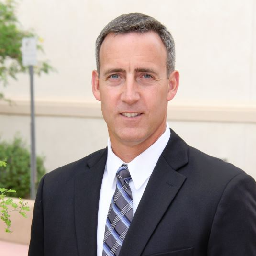Mr. Richard Wilkie has over twenty-four years of government related experience, which has included working for Clark County, NV; the Las Vegas Valley Water District and Southern Nevada Water Authority; the City of Henderson, NV; and for the past 15 years, the City of Casa Grande. During his tenure with the City of Casa Grande, Mr. Wilkie has led the economic development efforts of the city, which have resulted in recruiting major manufacturing and logistics related companies including Lucid Motors, Tractor Supply Co. Distribution Center, Ehrmann Arizona Dairy and Franklin Foods—that represent over one billion dollars in capital investment and more than eight thousand direct and indirect jobs. Mr. Wilkie currently represents the city on several regional Groups and committees, including the Greater Phoenix Economic Council’s Economic Development Directors Team, the Pinal Partnership’s Economic Development Group, and the Pinal County Local Workforce Board. He is also a former President for the Arizona Association for Economic Development. Mr. Wilkie received his bachelor’s degree in History and his Teaching Credential from California State University at Long Beach, his Master of Public Administration with an emphasis in Management of State and Local Government from The George Washington University and is a graduate of the University of Arizona’s 2008 Southwest Leadership Academy. Additionally, Mr. Wilkie received his certification as an Arizona Economic Development Professional through AAED and is a Certified Economic Developer (CEcD) through the International Economic Development Council.
Richard Wilkie is a member of the Greater Phoenix Workforce Leadership Academy, Class of 2021-22. Click here to learn more about local leadership academies in the Economic Opportunity Fellows Network.
The Workforce Leadership Academies are part of the Economic Opportunity Fellows Network, a network of leadership and fellowship programs run by the Aspen Institute Economic Opportunities Program. Within this Network, EOP connects national and local leaders from across sectors — nonprofit, government, business, philanthropy, academia, and more — to advance policies and practices with the potential to help low- and moderate-income Americans thrive in today’s economy. Learn more at as.pn/eofn.
If this is your bio and you would like to revise or update it, please contact eop.program@aspeninstitute.org.
